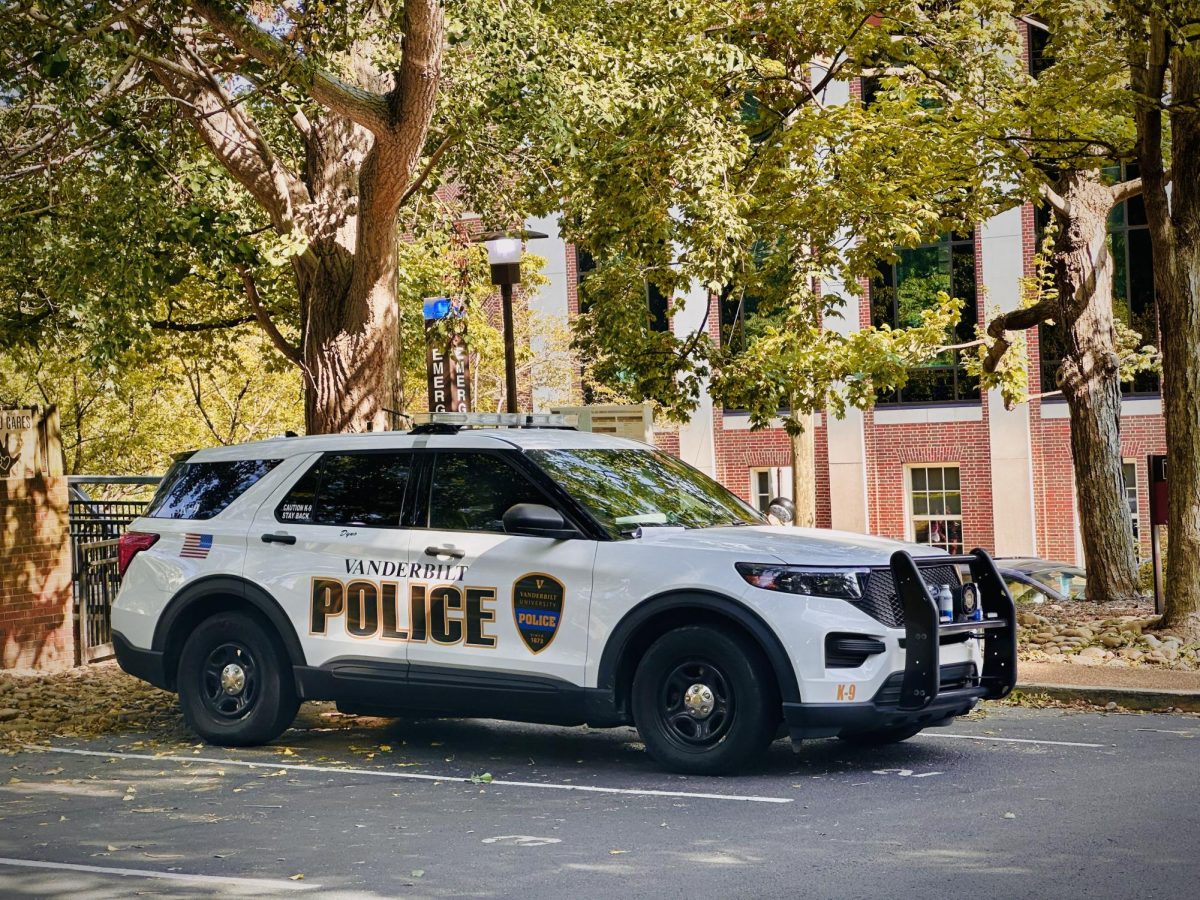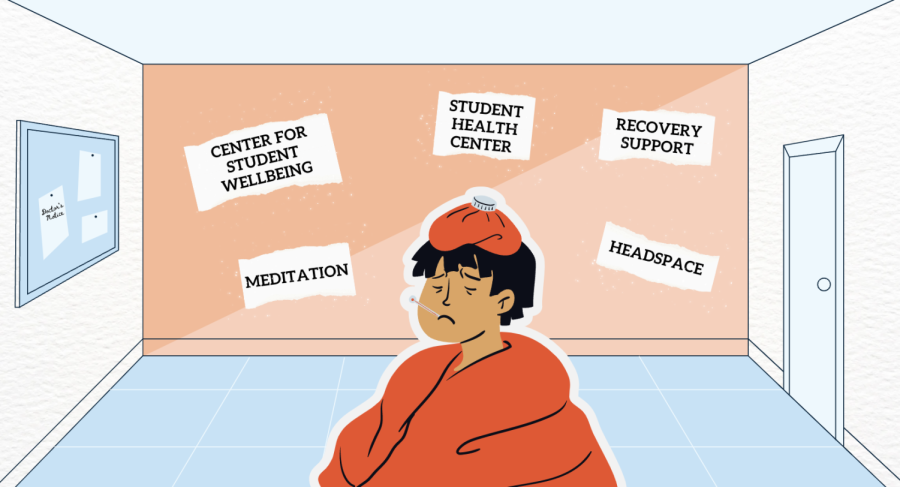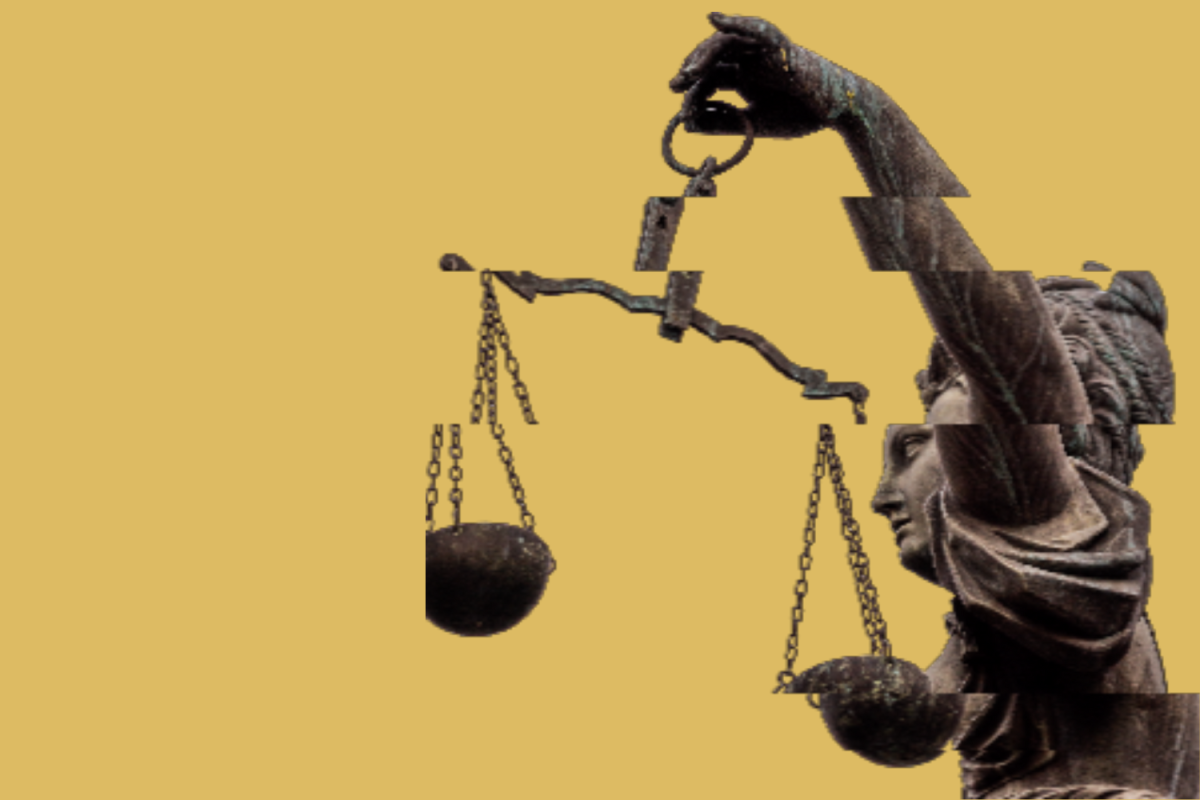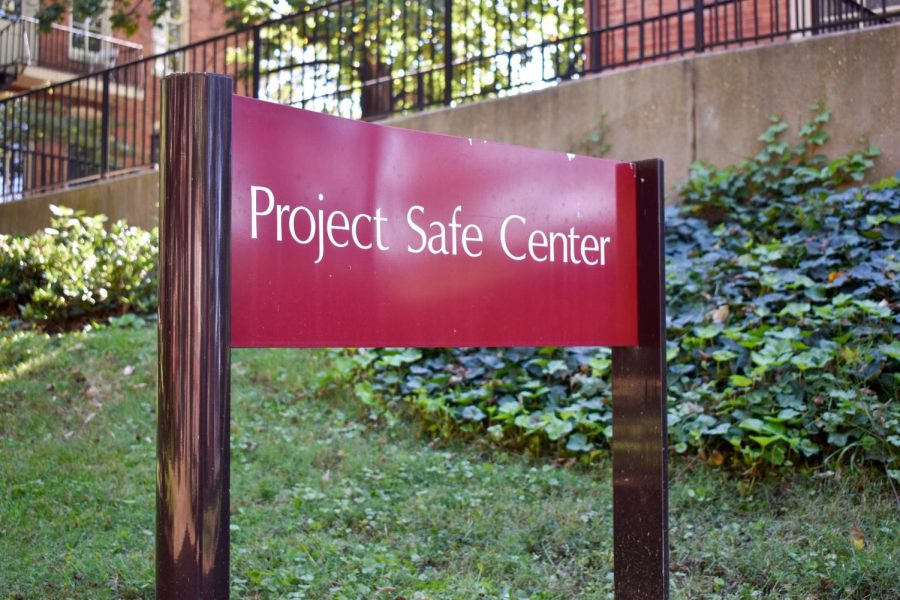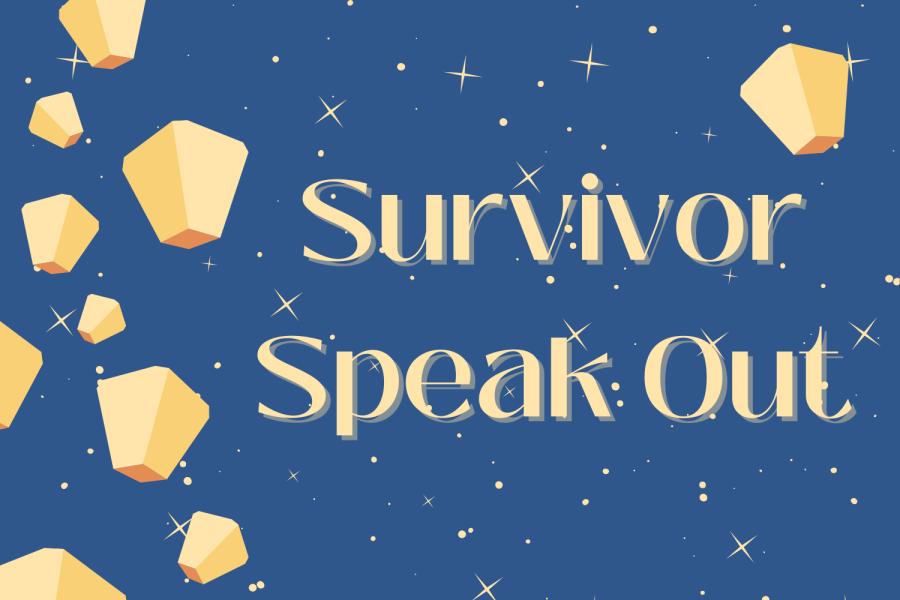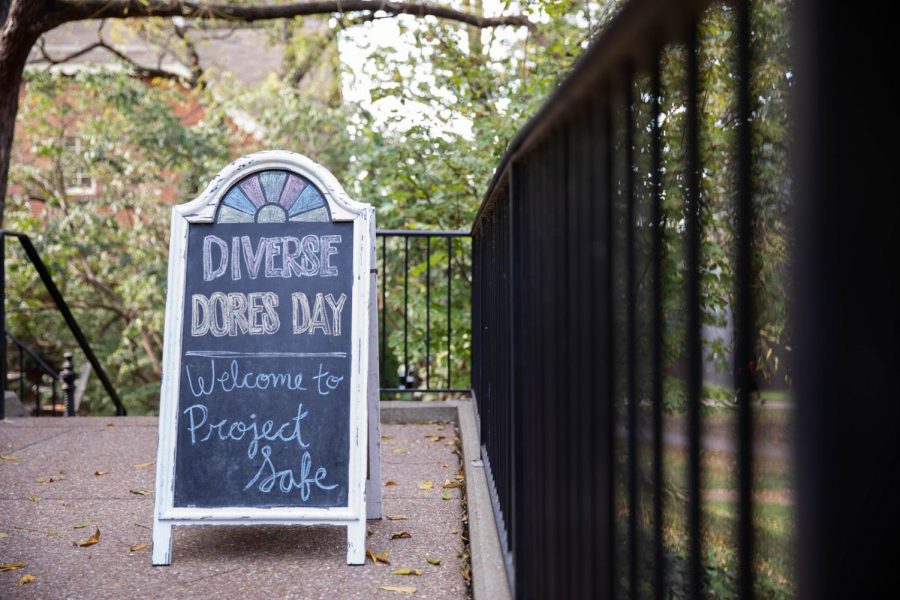Editor’s note: This piece contains mentions of sexual assault. The author of this piece is being kept anonymous under a pseudonym to ensure the author’s personal and professional protection.
I am writing this article to raise awareness of the trials and tribulations that I faced after many people in my community became aware that I was sexually assaulted. Many survivors of sexual assault are often punished for their experiences, even if they voluntarily choose to speak out about their ordeals. These negative reactions can make survivors question their perspective toward their trauma, reinforce feelings of self-blame, cause re-traumatization and mental health disorders and emphasize the presence and power of rape culture in our society. My goal is to urge readers to take an introspective look at themselves to see if they are the change they truly wish to seek.
The truth
I knew the student who assaulted me because I would see him often in Black spaces on campus and he was in my grade; we greeted each other when we crossed paths. One day, we made dinner plans to get to know each other better and ate in my room. In the middle of watching a TV show, he indicated that he wanted to have sex, and I declined. He continued to make incredibly vulgar statements about his desire to have sex with me, did not listen to my clear assertions of “no” and “stop” and refused to leave my room. He proceeded to sexually assault me in a way that the hearing adjudicator in my Title IX case described as particularly “offensive,” “pervasive” and “severe.” In the days after the incident, he apologized to me profusely on multiple occasions for his behavior. I made it clear that I just wanted to move on from the situation and blocked him on all online platforms.
Several months later, in January 2022, I received an email from Vanderbilt’s Title IX Office stating that it came to its attention that I may have experienced sexual misconduct. I met over Zoom with the then-assistant director of the office to discuss supportive resources and the complaint process. She said an investigation could be opened if I wished to formally report my experience, but I declined. I did not want to go through the tumultuous process that investigations required, nor did I want to open up Pandora’s box of personal repercussions that could have ensued from my reporting it. Apart from how I was already exhausted with academic and personal responsibilities, I simply was not ready to talk about the situation. I did not want to give an account of an experience with which I still had not come to terms or be profusely questioned about an event that I still had not fully processed.
The lies
In March 2022, I learned that word had gotten out that I had some sort of sexual encounter with my assaulter. A friend told me that gossip was being spread about me and this situation. I immediately had a panic attack during class, wondering how and why others could know. My assaulter and his fraternity brothers talked about this private, personal and dreadful situation to others. I heard details of my assault – in which I was personally identified – from other students, including those in his Greek council. All of the progress that I had made in processing and growing from this incident was immediately reversed.
That same day, I decided to formally report my assault to the Title IX Office. In the meantime, the gossip spread like wildfire. I could not visit social spaces without getting pointed looks from other students. I could not escape the hushed whispers and minuscule finger-points in my direction. There were rumors that I had gotten a restraining order against my assaulter and had accused him of raping me to our peers. So many lies and rumors were spread that were so far from the actual truth to the point where they didn’t make sense and were difficult to keep track of.
My assaulter’s fraternity brothers claimed that on the night he assaulted me, my assaulter had been extremely intoxicated and that I was with him that night because I was helping him while he was drunk. A brother even claimed that my assaulter and I had a consensual and casual sexual relationship with each other. Yet, at my hearing, my assaulter said he did not sexually assault me since my pleas for him to stop were indicative of me begging for more. Instead of formally acknowledging the errors in their behavior, my assaulter’s fraternity brushed it under the rug and pretended like it never happened. To this day, I am still dumbfounded and confused as to why these people hurt me in this way.
I developed severe PTSD, had horrific nightmares, woke up in cold sweats and suffered from violent panic attacks every other day. I constantly worried about who knew I was assaulted, what they thought they knew and how they viewed me.
As if it could not get any worse, the situation was inflated after a student organization included my assaulter in its cultural showcase in April 2022. A student sent an anonymous email to the organization’s executive board in which she condemned his involvement due to his reputation as a “known rapist.” She further denounced the organization for its hypocrisy since the theme of its play surrounded sexual assault. The organization posted a statement on its social media about this situation, causing people to further gossip about my assault and to identify me as the receiver of my assaulter’s rumored misconduct.
The effect
Others told my story for me, ripping away my personal autonomy. By identifying me and gossiping about my assault, my story was made public against my wishes to leave it in my past. My trauma was no longer mine — it was on full display for hundreds of people to see. It was extremely humiliating to be treated as the latest sensational gossip that needed consistent updates, no matter how false the details actually were. My trauma became “tea” to which people felt like they had a right to contribute their comments, opinions and theories. I felt that my presence and being on this campus dwindled down to this one terrible interaction. I felt reduced to “that girl who got raped” and condemned to receive only lowliness and pity from everyone. My accomplishments and involvements felt overshadowed by this horrible occurrence. My entire life felt condensed to that terrible moment, which was now the subject of my community’s attention. It was like I was being assaulted over and over and over again, endlessly and without hesitation. Every day became a never-ending nightmare that I could not escape.
Due to the stress and trauma that I was continuously experiencing, I suffered immensely in all aspects of my life. During the rest of the year following these events, I developed severe PTSD, had horrific nightmares, woke up in cold sweats and suffered from violent panic attacks every other day. I constantly worried about who knew I was assaulted, what they thought they knew and how they viewed me. These experiences ruined my year, preventing me from having the normal college experience that I deserve. Even now, I still struggle with my academics, mental health and graduation progress. My feelings after such a tumultuous year are a mix of anger, resentment, fear and paralyzation. I was continuously forced to bear the responsibility for an assault that was never my fault. Even though I try to integrate and assimilate myself back into my former spaces — forcing myself to feel and search for the way I once did before all of this occurred, it still does not feel safe in the slightest.
I tried to gain closure by downplaying the situation and only realized the weight of what had happened after speaking with health professionals, university administrators and family members. In these conversations, I finally experienced validation; after being subjected to this maltreatment for months, I was finally believed. Everything that happened to me was terrible, deplorable, sick and inexcusable. Most of all, everything that happened to me was completely preventable.
The future
Before coming to Vanderbilt, I saw posts of Black women sharing their experiences of being sexually assaulted at Vanderbilt and other universities. I was aware of Black students who felt routinely and systematically failed by the Vanderbilt community regarding sexual misconduct.
No change is brought about without some form of personal accountability. A culture cannot prevail without the vast majority of people supporting the customs and values that lay its foundation. Many people will agree that rape culture exists in our community and that more needs to be done to stop it; however, they often also engage in actions that normalize and trivialize sexual assault in the first place. They don’t make the effort to treat survivors with respect, awareness and dignity. They have no issue piling on the crushing baggage that survivors constantly carry.
Others told my story for me, ripping away my personal autonomy. By identifying me and gossiping about my assault, my story was made public against my wishes to leave it in my past. My trauma was no longer mine — it was on full display for hundreds of people to see.
Society’s expectations of how survivors should think or feel about their assaults are normalized. I was told that if I never met up with my assaulter in the first place, I never would have been assaulted. I was told that I shouldn’t cooperate in an investigation because it would cause more trouble than good. People spread information, regardless of its accuracy, for the sake of “caring about women” and “holding people accountable.” However, spreading rumors does not help anybody, especially if these “facts” were not personally said by the person that was actually affected.
As easy as it is to point fingers at my assaulter and his fraternity, their intentions would have never been fully realized if it weren’t for the hundreds of people eagerly listening and senselessly repeating what they heard. Survivors should not have to vividly describe their assault, nor the devastating effects it has had on them. Likewise, nobody has the right to know these details or their effects. Normalizing these “curiosities” contributes to a culture that allows opinions to be shared about sexual assault. In reality, there is a single truth: sexual assault is wrong. It is necessary for society — and the Vanderbilt community in particular — to recognize behaviors that contribute to tolerating sexual assault and to recognize the connections between their conscious beliefs and their implicit actions. We need to give survivors the agency to decide how they were affected by being assaulted. That decision is not anyone else’s, and there should not have been so many people deciding for me. These treatments are simply unacceptable.
My story needs to be told because I am not the first person who this has happened to. My story needs to be told because, sadly, if history proves anything, I probably won’t be the last. By writing this article, I hope that my testimony will not only help others to sympathize with the external and internal struggles that survivors commonly experience but also change widespread community attitudes toward the sensitive nature of sexual assault. Survivors’ personal experiences are important, and they deserve to be heard. As I continuously work on healing and taking back power over my trauma, I want to thank you for reading mine.






